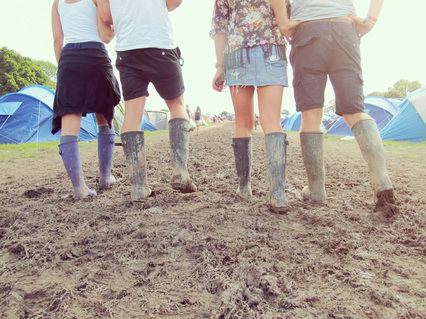|
The final bank holiday of summer has come and gone, which for many signals the UK summer coming to an end.
Summer festivals have become incredibly popular in recent years, with an estimated 14 million people attending them in the UK alone. The August bank holiday is particularly popular for festival goers who flock to Reading and Leeds festival for a weekend of music, camping, no sleep, mud, drinking and pretty dire food. For some, this combination makes for the most ideal bank holiday, however for others they’d prefer a cleaner and more relaxed way to spend the weekend. Media coverage is essential for those who chose to avoid Reading & Leeds festival this weekend, but are still Red Hot Chilli Peppers fans or enjoy a bit of grime from the likes of Stormzy. TV and radio coverage of UK festivals allows you to enjoy the music from the comfort of your living room by watching it on the TV or via radio. Whilst, of course, it doesn’t begin to match the experience of the atmosphere that’s to be soaked up in the crowds of a festival, TV and radio coverage does allow for you to experience the best quality version of the music, with an average saving of £300, along with the best view as you don’t risk being stuck behind a group of 6ft males who enjoy a good mosh pit. This summer marked 20 years for the BBC’s coverage of Glastonbury, the world’s largest greenfield festival. Despite the BBC celebrating its score year covering Glastonbury, they announced a reduction in TV coverage by 5 hours. The BBC announced viewers would be able to watch 25 hours of live coverage across the weekend, a reduction from the past 2 years which saw a total of 30 hours across the weekend. Instead, radio coverage increased with more than 60 hours being devoted to radio as well as the BBC uploading a lot of content onto their new BBC music app in order to encourage traffic through here. It’s not only festival coverage where we are witnessing a current and future shift in types of broadcast; this can also be anticipated by the viewership figures from this summer’s Olympics. TV viewership for this year’s Olympics saw around a 20% decrease compared to previous years. Online platforms and apps saw a large increase in traffic, displaying the swap from devices used for viewing. This has led many to already start reflecting on viewing methods for Tokyo 2020 in four years time. The general expectation is that we are likely to see an even larger rise in the shift from live TV to alternative broadcast methods, such as phone and tablet apps, which can be used on the go. This reduction in TV coverage and an increase in concentration on other platforms, whilst only small at the moment for festivals, still make you question the future of festival coverage. Will we gradually lose the opportunity to view festival highlights live on our TV in favour for moving with the modern age and seeing a shift to coverage being focused through apps, iPlayer on laptops/computers/tablets and online radio? Carys Bedford TV and Radio Coverage We may not be able to provide mud filled, cider filled TV and radio coverage, we do offer the best editorial coverage for brands and charities alike. IMN Content are the UK’s lifestyle news and consumer content providers - we are able to provide any UK radio and TV stations with spokespeople and guests so if you would like to get your brand heard then please click here to get in contact or call us on 020 7717 9696 or email [email protected]
0 Comments
Leave a Reply. |
AuthorsFilippo Cartoni Archives
October 2018
Categories |


 RSS Feed
RSS Feed
